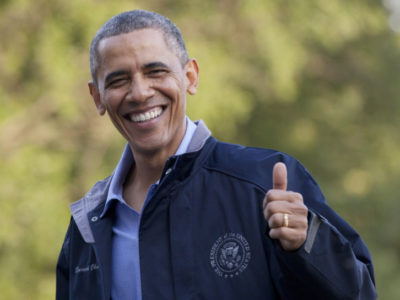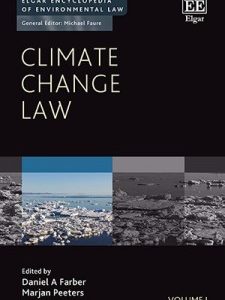International Environmental Law
Tillerson and Perry – It’s Complicated
They’re not as bad as you might think. Relatively speaking.
The immediate environmentalist reaction to Rex Tillerson and Rick Perry — Trump’s choices to run the Departments of State and Energy — is that these are disastrous choices, like Trump’s selection of climate change denier Scott Pruitt to run EPA. That’s understandable. After all, Tillerson is the CEO of Exxon. As to Perry, the Washington Post headline says …
Continue reading “Tillerson and Perry – It’s Complicated”
CONTINUE READINGConflicting News about President-Elect Trump and Climate Change
Transition Team Uniformly Anti-Climate but Trump Signals Open Mind to NY Times
Today we got a sliver of hope from President-Elect Trump about remaining in the Paris Agreement. He also acknowledged a connection between human activity and climate change, something obviously at odds with his campaign rhetoric. Trump told the New York Times he would “keep an open mind” about the U.S. commitment to the Paris Agreement. He …
Continue reading “Conflicting News about President-Elect Trump and Climate Change”
CONTINUE READINGAll Eyes on the Subnationals
After the election of Trump, state and local leaders have to step up
As my colleague Ethan Elkind pointed out in a blog post the other day, the most viable path forward in the fight to slow (cause we’re kind of past the ability to prevent) climate change after the election of Donald Trump as President on Tuesday will be at the sub-federal level. As Ethan pointed out, …
Continue reading “All Eyes on the Subnationals”
CONTINUE READINGObama’s Remarkable Environmental Achievements
When you look at the whole of his legacy, it’s a stunning record.
When he leaves office in January, President Obama will have compiled a remarkable record of environmental achievements. The record spans everything from climate change to endangered species and ocean protection. We can only hope that next Tuesday’s election doesn’t undo many of these gains. Here is a list, in no particular order, of twenty of …
Continue reading “Obama’s Remarkable Environmental Achievements”
CONTINUE READINGConfronting the “Emissions Gap”
Long-term thinking and short-term deficiencies in climate change mitigation
With the Paris Agreement now ratified by 86 countries, and entering into force this Friday, countries have defined their first targets—the first round of nationally determined contributions (NDCs). The United States has pledged to reduce GHG emissions 26-28% below 2005 levels by 2025. This initial round of NDCs is significant, but represents only a short timeframe and …
Continue reading “Confronting the “Emissions Gap””
CONTINUE READINGOctober Surprises: A Month of Major Advances in Climate Policy
October has seen major strides toward controlling greenhouse gases.
As the campaign seems to get more and more awful, I thought you might like to hear some good news. Behind the tumult of the campaign, there has been real progress in addressing climate change in the U.S. and around the world. In particular, there were four major advances just this month. The first is that …
Continue reading “October Surprises: A Month of Major Advances in Climate Policy”
CONTINUE READINGCutting HFCs under the Montreal Protocol — A few thoughts
Yup, international diplomacy is slow. One year ago, at their last meeting, the parties to the Montreal Protocol decided to proceed with negotiating an amendment to the treaty to limit HFCs. They negotiated that amendment in several sessions over the past year, and adopted it last Friday at the end of their 2016 meeting in …
Continue reading “Cutting HFCs under the Montreal Protocol — A few thoughts”
CONTINUE READINGHope in Kigali
How one step could avoid 0.5°C of warming
Today, with what could be very little fanfare, the world may take one of its largest steps yet to avoid the worst impacts of climate change, all by phasing out a little-discussed chemical used in refrigeration and air conditioning – hydroflourocarbons. Hydrofluorocarbons, or HFCs, are considered a “short-lived climate pollutant” or “super climate pollutant,” a …
Continue reading “Hope in Kigali”
CONTINUE READINGSurveying Climate Change Law
In only 25 years, a dynamic new field of law has taken root.
Climate Change Law, the first volume of Elgar’s Encyclopedia of Environmental Law has just appeared. There are a number of excellent edited collections about aspects of climate change law. What distinguishes this one is that breadth of the coverage, including both international and domestic aspects of carbon reduction and adaptation to climate change. The book confirms how quickly climate change …
Continue reading “Surveying Climate Change Law”
CONTINUE READINGCan Women’s Land Rights Combat Climate Change?
Suggestive Links Between Gender Equity and Sustainability
I suppose that the holy grail of environmentalism, and environmental scholarship, is integrating equity concerns with global priorities. The environmental justice movement has sought to do this, sometimes with success and sometimes less so. Now Jennifer Duncan of Landesa, one of the most innovative think tanks focusing on land rights and the Global South, thinks …
Continue reading “Can Women’s Land Rights Combat Climate Change?”
CONTINUE READING










